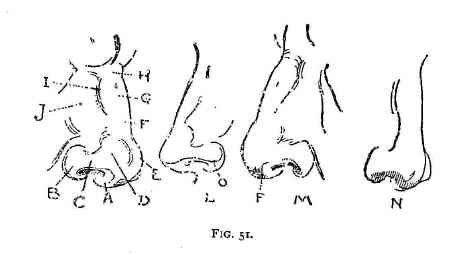Struck by good writing or powerful speeches, I am reminded of the impressive ability of words. Read a review before you experience a product of consumption - be it actual food, or music, or literature - and you will find your experience indelibly coloured by the words of another. A journalist's grizzly exposition of a prominent personage's transgressions can be the harbinger for his resignation in the imminent future. Two simple words said in front of a congregation cement a lifetime partnership.
There is an odd cadence to words, and a rhythm to them that suggests they have a life of their own. Beyond the speaker and his speech or voice, the words he speaks have an intrinsic music, and a power of their own. The speaker's own abilities, like a musician's, make a difference between a good rendition and a bad one. But ultimately, the delivery is only a rendition. Words in themselves are something purer still. More than content or style, every word has meaning and meanings which you can tease out and make resonate by the way you string them together with other words. Constructed and deconstructed, they are greater than the sum of their parts.
Eloquence and story-telling. Eloquence in story-telling. I promised myself once that I would endeavour to these things. But I have failed my old primary school motto. I have endeavoured, but not persevered, in craftsmanship. Talking to a friend recently, I remarked on how I relied upon the spirit of inspiration to write. Her response was that in order to best do justice to that you need to have the discipline of consistent practise.
Reminded of this, I am resolved to write. I do. Not just as the spirit moves. Not just in fits and spurts, at times engorged on hypergraphia, sometimes starving. But in controlled, intentional way, chewing through the varying forms of texts in a regular diet intended for growth.
Saturday, July 4, 2015
Thursday, July 2, 2015
Mainstream religion
This video. It was love at my virgin experience of Hozier's Take Me to Church. I watch this video and I count my blessings.
The blessed outcome of a bad breakup, the song decries the fallacies of organised religion whilst revelling in the hedonic and powerful experience of love. As Nick Messitte so eloquently describes, it is a 'deliciously acidic criticism of religious institutions, particularly their interference in our bedrooms'.
Drawing on Wikipedia for some incredible insights into the songwriting, in an interview with The Irish Times, Hozier stated, "I found the experience of falling in love or being in love was a death, a death of everything. You kind of watch yourself die in a wonderful way, and you experience for the briefest moment–if you see yourself for a moment through their eyes–everything you believed about yourself gone. In a death-and-rebirth sense."
In an interview with New York magazine, he elaborated: "Sexuality, and sexual orientation – regardless of orientation – is just natural. An act of sex is one of the most human things. But an organization like the church, say, through its doctrine, would undermine humanity by successfully teaching shame about sexual orientation – that it is sinful, or that it offends God. The song is about asserting yourself and reclaiming your humanity through an act of love."
As the song rose to fame, the official video made to go along with the song was riveting political commentary of Russia's facist stance on homosexuality, which is perhaps subtly echoed in other communities, particularly those of a religious nature.
As a dance video, it took me on an exploration into Sergei Polulin's other works, as well as his stormy course as a professional dancer and growing up in Russia, as explored in a video by NOWNESS, yet another treasure trove of humans exploring humanity.
I leave you with Messitte's concluding paragraph:
We live in a complicated, often dismal world, one in which governmental powers are increasingly terrifying (from ISIS to Putin and everything in between—including aspects of our own system).
In the United States, we find ourselves in a landscape now roiling with discomfort, in which even the most ardent democrats have lost faith with our executive branch, in which iniquities of gender and race have yet to be been addressed, in which child homelessness is on the rise, in which nearly half of us blame poor people for their own poverty while simultaneously overlooking the entrenched nature of our corporate welfare systems.
Has any of this been reflected in the pop charts?
Not recently; the last political protest song I can remember discussed in the mainstream was John Mayer’s “Waiting for the World to Change”—an utterly toothless and passive song if ever I heard one:
Marvin Gaye asked us a direct and powerful question (“What’s Going On?”). John Mayer simply took a walk by the East River and waited for the world to change around his beautifully sculptured face.
- Nick Messitte in his analysis of Hozier's Take Me To Church
Subscribe to:
Posts (Atom)
